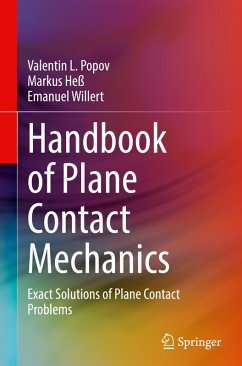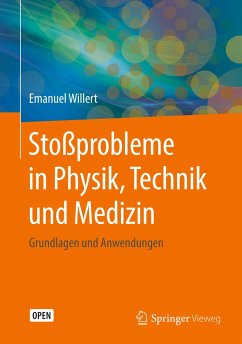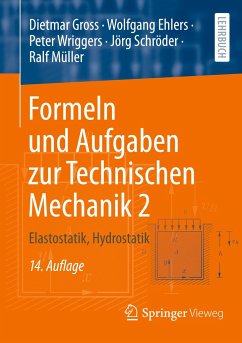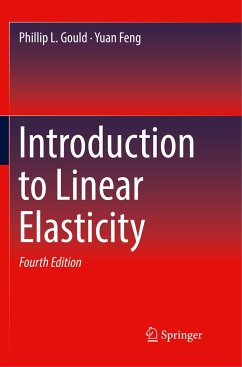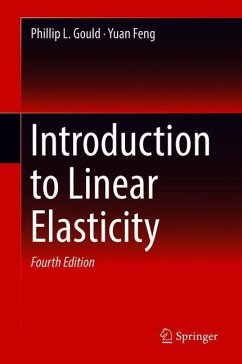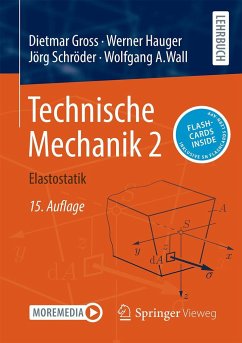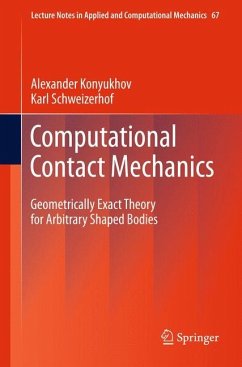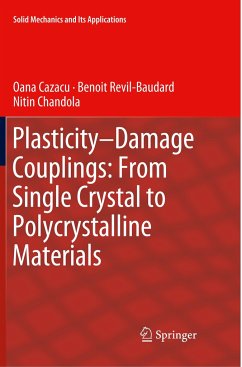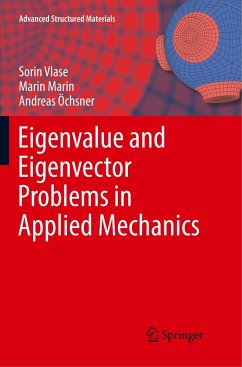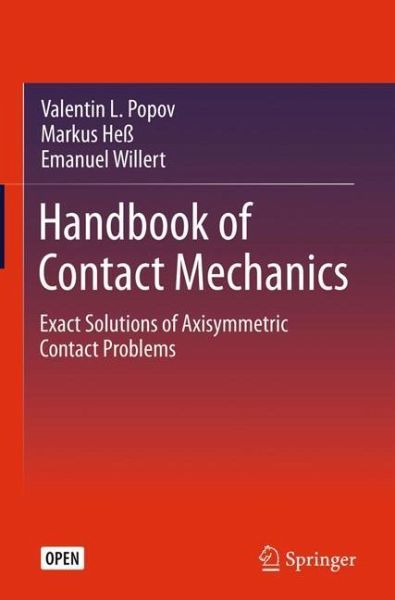
Handbook of Contact Mechanics
Exact Solutions of Axisymmetric Contact Problems
Versandkostenfrei!
Versandfertig in 1-2 Wochen
38,99 €
inkl. MwSt.

PAYBACK Punkte
19 °P sammeln!
This open access book contains a structured collection of the complete solutions of all essential axisymmetric contact problems. Based on a systematic distinction regarding the type of contact, the regime of friction and the contact geometry, a multitude of technically relevant contact problems from mechanical engineering, the automotive industry and medical engineering are discussed. In addition to contact problems between isotropic elastic and viscoelastic media, contact problems between transversal-isotropic elastic materials and functionally graded materials are addressed, too. The optimiz...
This open access book contains a structured collection of the complete solutions of all essential axisymmetric contact problems. Based on a systematic distinction regarding the type of contact, the regime of friction and the contact geometry, a multitude of technically relevant contact problems from mechanical engineering, the automotive industry and medical engineering are discussed. In addition to contact problems between isotropic elastic and viscoelastic media, contact problems between transversal-isotropic elastic materials and functionally graded materials are addressed, too. The optimization of the latter is a focus of current research especially in the fields of actuator technology and biomechanics. The book takes into account adhesive effects which allow access to contact-mechanical questions about micro- and nano-electromechanical systems.
Solutions of the contact problems include both the relationships between the macroscopic force, displacement and contact length, as well as the stress and displacement fields at the surface and, if appropriate, within the half-space medium. Solutions are always obtained with the simplest available method - usually with the method of dimensionality reduction (MDR) or approaches which use the solution of the non-adhesive normal contact problem to solve the respective contact problem.
Solutions of the contact problems include both the relationships between the macroscopic force, displacement and contact length, as well as the stress and displacement fields at the surface and, if appropriate, within the half-space medium. Solutions are always obtained with the simplest available method - usually with the method of dimensionality reduction (MDR) or approaches which use the solution of the non-adhesive normal contact problem to solve the respective contact problem.



